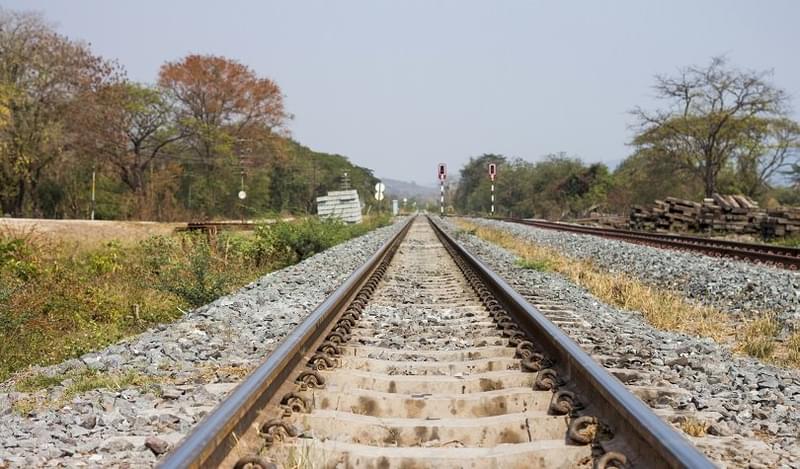Plans to appoint the former chief of Russia’s Foreign Intelligence Agency Mikhail Fradkov as a new chief of the state-run company Russian Railways (RZD) have hit a dead-end amid fears that individual Western sanctions against one of president Putin’s closest allies could undermine RZD’s international capital market positions.
Fradkov, who was put on the individual sanctions list after the annexation of Crimea in 2014, was seen as an overwhelming favourite to take over the job after the Russian president pitched him as his candidate in September.
Now a leading Russian newspaper Vedomosti, citing its sources within the company, reported on Tuesday that the delay in making this appointment was caused by concerns that association with sanctioned individuals could result in the restrictions being expanded to the whole company.
If that were to happen, RZD’s Eurobond holders would be eligible to demand an early repayment on the company’s debt, which would lead it to default on its obligations as “there is no money for such a pay-out”.
Since its return to the international bond markets after a two-year absence, RZD has been very active, implementing a credit portfolio optimisation programme.
Last week Russian Railways redeemed US$680mn worth of 0.5 and 1.5 year Eurobonds, replacing them with US$500m in new notes maturing in 4 years, and RUB15bn (US$237mn) maturing in 7 years, with JP Morgan, Sberbank CIB and VTB Capital acting as joint lead managers and bookrunners.
In H1 of 2016 Eurobonds accounted for 40% of the company’s net debt of RUB635.9bn (US$10bn), consisting of US$2bn, RUB52.2bn and CHF525m worth of securities.
While analysts point out that RZD’s former chief, Vladimir Yakunin, was also hit with Western sanctions, which did not spread to the company, the current situation may be rather different – namely, because it concerns new issuances.
“Sanctions that can potentially be extended to Russian railways have so far only affected new issuance, not the existing outstanding bonds. If this were to happen, I can see RZD struggling to get access to the markets, but I’m not sure it would be a material problem for a company that has state support and ample Russian reserves behind it,” noted Thomas Christiansen, EM Sovereign Debt Portfolio Manager at Nordea Asset Management.
The recent US$500mn issue with a 4-year tenor achieved the company’s lowest-ever yield on US dollar debt, at 3.45%, and proved very popular with foreign investors, which oversubscribed by a factor of 8.
This prompted Russian Railways to seek further exposure – for example, through perpetual bonds. Reports in state news agency RIA Novosti early Tuesday suggested another RUB150bn worth of potential securities issuance has been approved by the Board, although the company declined to comment on any timeline for such a deal.
So far the expansion of individual sanctions on corporate entities associated with them has been a legal grey area, with Russian-based lawyers suggesting that investors would not be able to demand immediate repayment, and that this could affect price valuations.
A Russian-based legal expert told Bonds & Loans that it is difficult to speculate about the extent to which current and possible new sanctions can affect Russian corporate Eurobonds, but pointed out that Rosneft and Gazprom have not suffered any significant damage in that regard – despite some of their top management being added to the sanctions list.
There have been hints about the appointment of a sanctioned government official at RZD was a way to “tease” the markets for higher premiums, though investors remain sceptical.
“I’d be surprised if this story was an overt attempt at manipulating yields, and even if it were – it’s not really working so far, the indexes haven’t reacted much,” admitted Christiansen.
“If suddenly some story of Russian Railways coming under corporate sanctions hit the headlines, I can foresee a ‘blip’ in their performance,” added Christiansen. “But it would still be muted and dedicated investors would rather see that as an opportunity to get a good carry on a relatively low credit risk.”
Nevertheless, Vedomosti’s sources are confident that Oleg Belozyorov, the current RZD chief, will be allowed to keep his position so as to avoid threatening the company’s debt market presence.
Ironically, the story came out just as another big Russian firm, Lukoil, reportedly considers launching a bond sale. RZD’s predicament raises a broader question about the Russian corporate sector’s prospects on the capital markets, particular as European and US politicians continue to debate additional sanctions on Russia for its Syrian campaign.
The sanctions on Russia in general haven’t had much of an impact on bond performance and they have performed reasonably well, Christiansen added.
“They have constrained their ability to issue, but if anything that has stimulated some of the positive structural reforms. I don’t expect to see a heavy issuance for them in 2017 – even if they have market access”.
At this point, it appears that strong liquidity and state backing are helping to maintain the financial health of Russian corporate giants, making the need to tap international debt markets less urgent. There also appears to be no immediate threat to their forays into bond markets from the legal side. The risk for investors – though still present – is unlikely to fluctuate significantly within the current sanctions framework.









